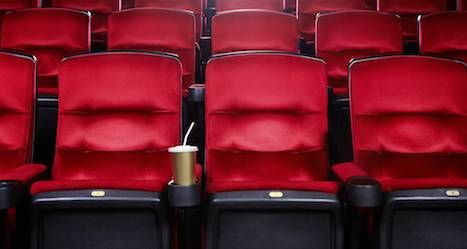
Was the Book Better? I No Longer Care
Ever since, I imagine, the first film adaptation of a book, bibliophiles have insisted, “The book was better.” It’s the constant refrain of the avid reader, and it’s worn like a badge of honor:
We’re the “real” fans. We loved this before you had ever heard about it.
For ages I’ve been one of them. Because, let’s be honest, the book usually is better. There is a richness to written long-form storytelling that can’t be replicated on screen. At minimum, we lose that narrative perspective of our protagonists that books so often lend, and the beauty of the language itself.
For these reasons, for most of my life, I’ve had a rule that I read the book before I take in an on-screen adaptation of it.
But there is just too much awesome out there these days.
Thanks to disruptors like Netflix, Amazon, and HBO, television is in a new golden age. Simultaneously, movies have struggled, and turned to adaptations as a way to tap into fandoms and make bigger profits.
The result is a massive influx of incredible storytelling happening on both the small and big screens.
I am a sloooow reader. I finally had to just admit to myself that I don’t have time to read everything I want to—if I’m lucky and determined and it isn’t February, I can get through two books a month. That maxes me out at 24 books a year, hardly a drop in the sea of amazing reads available these days. And that doesn’t even address re-reads, or picking up a Goldfinch or an Anna Karenina—which I like to do sometimes.
So the long and short of it is, reading every book before I catch the adaptation, well, I’d be about three years behind by now on everything.
And let’s be honest—sacrilege alert—the book is not always better.
Another factor in my decision to let go of my book-before-screen rule is the increasing sophistication of on-screen storytelling. While “the book was better” is still a satisfying refrain, I feel I must follow it up with the tag, “but not always.”
As exhibit A, allow me to present True Blood. The novels are darling and I adore Charlaine Harris, but that HBO show just can’t be paralleled. Another example, Game of Thrones—anyone who says it’s just as easy to follow all those different characters in the novels is just lying.
“Integrity” in Reading is a Pointless Concept
The more creative writing I do, and the more time I spend with other writers and creatives, the less high-minded I am about art and creativity in general.
I am less worried about holding onto that one new magical idea (they tend to come back to me, and I already have more than I can deal with); I am less concerned about making sure the words at the end of a chapter are utterly perfect (I’ll fix it in rewrites); and yeah, I’m a lot less precious about where and how I consume stories from the rest of the world.
I still maintain that reading the book before watching an adaptation holds merit. And if you are that uber-cool person who was a fan of Big Little Lies or Game of Thrones or The Girl on the Train before they were available for streaming, well hey, good for you, you trendsetter.
But I’ve decided that I’d rather take in as many amazing stories as I can, in whatever form I can get them in, rather than cling to this arbitrary rule.













